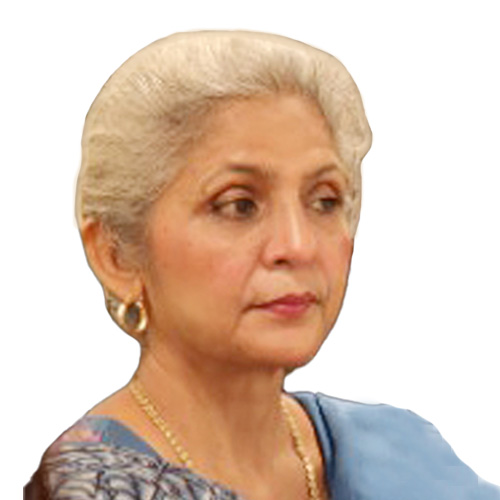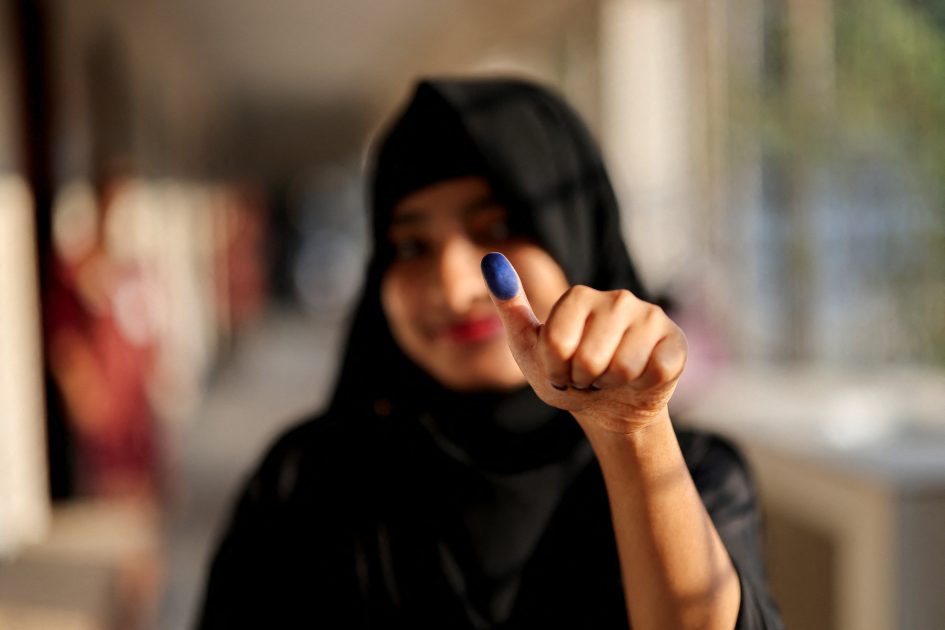- Web Desk
- Feb 16, 2026
Who’s really running Pakistan’s economy?
It is hard for any democratic government, amid pulls and pushes, to craft a perfect policy mix that evenly serves the interest of every sector and segment, all at once. Prioritisation is inevitable, especially when public resources are limited, requiring careful adjustments to tax regime and difficult choices between competing demands on public spending.
In theory, a democratic government seeks to serve the interest of the majority while minimizing and fairly distributing the burden of policy choices, except in times of crisis, such as war or natural disasters. However, when policies consistently and visibly disadvantage majority and relatively more compliant segments of society, as has often been the case in Pakistan, it calls into question the legitimacy of both policymaking process and its underlying purpose.
Perpetually in crisis, successive governments in Pakistan have repeatedly asked struggling citizens and businesses to sacrifice in the present for promised future gains that rarely materialise for them. A cursory look at the country’s economic trajectory reveals a familiar pattern: poverty deepens during low growth periods, but during times of relative expansion, the benefits rarely reach the majority. In fact, history shows that economic inequality, both class-based and regional, worsened during high-growth eras under Gen Ayub in the 1960s, Gen Zia in the 1980s and Gen Musharraf in the 2000s.
As in the past, the current phase of low economic growth has pushed nearly half of Pakistan’s population below the poverty line. Yet the government, while implicitly blaming the IMF for its decisions, continues to uphold an unfair taxation regime, and has worsened it by targeting salaried households and compliant businesses with additional revenue measures. On the spending side, the situation is equally troubling. Rather than demonstrating efforts to cut wasteful expenditures within an over-sized state apparatus, the government has announced substantial increases in the emoluments of legislators, senators and officials, many of whom preside over persistently poor governance. At the same time, it has slashed the development budget and refused to raise the minimum wage or link government support to firm’s wage bill share, further undermining economic justice and social equity.
In addition to higher taxation and reduced development spending, vulnerable segments are further burdened by harsh non-tax revenue measures, such as a significantly increased Petroleum Development Levy (PDL), which has driven up fuel prices despite declining global oil rates, and steep hike in gas and electricity tariffs. Meanwhile, the government has largely turned a blind eye as affluent traders, brokers, realtors, feudal elite and cash-based service providers continue to exploit systemic loopholes to their advantage.
Most observers note that, besides higher taxation and reduced development spending, vulnerable segments are further burdened by painful non-tax revenue measures — including a significantly increased petroleum development levy (PDL), which has pushed fuel prices higher despite falling global oil prices, and higher tariffs for gas and electricity. However, the government opted to look the other way while rich traders, brokers, realtors and feudal aristocracy and many service providers dealing in cash continues to abuse the system to their advantage.
While observers, business leaders and even legislators acknowledge the influence of elite groups on policymaking, they often struggle to explain the precise method through which this pressure is exerted. Despite clear evidence of policy shifts aligned with elite interests, the full range of tools and tactics used by lobbyists in lobbyists in Pakistan remains largely unexplored, under-researched and poorly understood.
Younus Dagha, former Sindh minister, federal secretary, and current Chairman of the Policy Research and Advisory Council at the Karachi Chamber of Commerce and Industry, was candid in his criticism of the government and its counter-productive policies.
“Elite policy capture is evident in most of our fiscal decisions”, he remarked. “The bankers’ lobby effectively dominates the Q-block in Islamabad Secretariat, which is why debt restructuring is absent from our fiscal strategies, and why belt-tightening measures never touch allocations like Rs87 billion earmarked for to receive remittances-related incentives. We are also well aware of the powerful lobbies that block efforts to tax agriculture income and real estate. Just look at special regulatory orders (SROs) granting exemptions, they reveal a clear pattern of the influence and the key players behind policy capture.”
As PPP senator, Farhatullah Babar, known for his advocacy on human rights, political transparency and provincial autonomy, referred to what he called ‘a conspiracy of silence’ around elite influence. He strongly advocated for regulating political financing and ensuring greater transparency in the policy making process.
Another senator from Karachi, speaking privately, shared that he had witnessed instances where business tycoons close to the ruling party directly participated in decision-making forums. “On several occasions, I have seen businessmen attending Cabinet and Economic Coordination Committee meetings, clearly in violation of the rule of business”, he said.
“Elite groups, often covertly but at times overtly, fund campaigns, offer expensive gifts, and sponsor luxury foreign trips for legislators. In return, they expect these lawmakers to speak on their behalf in parliament and to protect and promote their narrow interests, even when doing so undermines the broader public good”.
Most developed countries have established institutional mechanisms to regulate the activities of powerful lobbies. Though far from perfect, these systems reflect a recognition of the problem and ongoing efforts to address it through structured reforms, such as mandatory lobbyist registration and campaign financing rules.
PPP Senator Quratul Ain Marri, commented, “I would very much like to initiate a debate on this issue in the upper house. But realistically, there is little political will for full disclosure, transparency, or for creating and empowering oversight institutions”.






